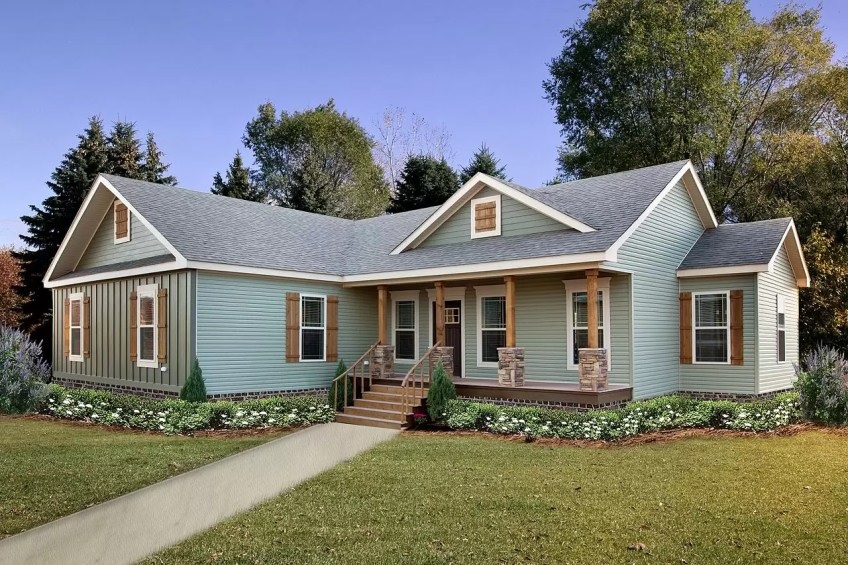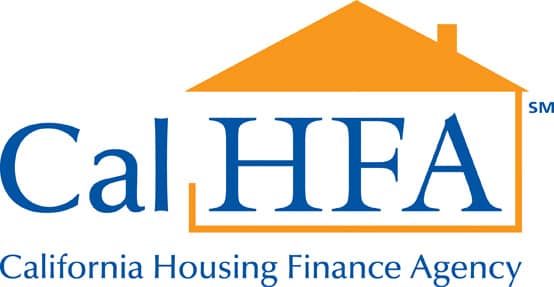Nestled in the picturesque city of Roseville, California, Fiddyment Ranch stands out as a premier…
Manufactured Home Financing
To be able to obtain financing for a Manufactured Home with Unified Home Loans, the following requirements have to be met:
– The home must be a minimum of 400 square feet.
– The home must have been built after June 15, 1976, and in conformance with the Federal Manufactured Home Construction and Safety Standards (there will be a certification label to signify this)
– The home must be on a permanent foundation and cannot be located in a mobile home park. Best way to determine if it’s on a permanent foundation is if the owner pays Real Property Taxes. If not, most likely it’s a mobile home that’s not permanently affixed. Parks charge rent space which would make the manufactured home not eligible for financing. The land owned must be land owned directly under the manufactured and not be a fractional interest in a park.
– The loan must also cover the land that the manufactured home sits on. If it does not, and the mobile home is on land you do not own
Refinancing
If you already own a manufactured home in California, you may be able to refinance it to make improvements or lower your monthly payment by reducing your interest rate. Please contact us by clicking More Info button below.
Frequently Asked Questions from HUD Website
GENERAL PROGRAM INFORMATION
What is considered a manufactured home?
A manufactured home (formerly known as a mobile home) is built to the Manufactured Home Construction and Safety Standards (HUD Code) and displays a red certification label on the exterior of each transportable section. Manufactured homes are built in the controlled environment of a manufacturing plant and are transported in one or more sections on a permanent chassis.
What is the difference between manufactured and modular homes?
Manufactured homes are constructed according to a code administered by the U.S. Department of Housing and Urban Development (HUD Code). The HUD Code, unlike conventional building codes, requires manufactured homes to be constructed on a permanent chassis. Modular homes are constructed to the same state, local or regional building codes as site-built homes. Other types of systems-built homes include panelized wall systems, log homes, structural insulated panels, and insulating concrete forms.
What are my options for financing the purchase of a manufactured home?
There are many alternatives for financing your home, including a growing number of lending institutions that are providing conventional and government-insured financing plans for prospective owners. The most common method of financing a manufactured home is through a retail installment contract, available through your retailer. Some lending institutions that offer conventional, long-term real estate mortgages may require the homes to be placed on approved foundations. Manufactured homes are eligible for government-insured loans offered by the Federal Housing Administration (FHA), the Veterans Administration (VA), and the Rural Housing Services (RHS) under the U.S. Department of Agriculture.
For additional assistance, you may wish to contact HUD’s Housing Counseling Clearinghouse. HUD-approved housing counseling agencies provide housing counseling to renters, first-time buyers, and homeowners. Homeowners with problems that could result in default of their mortgage or foreclosure on their property need to contact a HUD-approved housing counseling agency immediately. HUD’s Housing Counseling Clearinghouse operates a toll-free 24-hour-a-day automated voice response system that provides referrals to local housing counseling agencies, at (800) 569-4287. Referrals are also available to Spanish-speaking consumers.
Whom do I contact if my home was damaged during installation?
Retailers may contract with their customers for the installation of their homes, in which case the retailer is your first contact for installation-related problems. If the retailer does not arrange for the installation and you choose the installation contractor, you should contact the installer who performed the work. If you are not satisfied with the repair, contact the local authority/SAA having jurisdiction. It is important that all services related to the installation be listed separately in the contract.
What should I do if I’m having problems with my home and the Retailer and/or Manufacturer are no longer in business?
Contact your SAA or State agency that regulates manufactured home manufacturers or retailers. Your State may administer a bonding or recovery fund program for such instances.
My home was built before June 15, 1976. I’ve made some modifications to my home and believe it meets the HUD Standards. Can someone come inspect my home to make sure it’s in compliance with the Standards?
HUD does not inspect homes. Homes built prior to June 15, 1976, even with modifications, do not meet the HUD standards and cannot be accepted as compliant with the HUD Code. As the homeowner, you may find a licensed engineer willing to inspect your home for compliance with your state’s housing code. FHA does not insure mortgages on manufactured homes built prior to June 15, 1976. Most other mortgage insurance firms follow FHA’s policy.
Will HUD issue certification labels (HUD tags) if my home was built before 1976?
No. The Department will not issue tags for a manufactured (mobile) home constructed prior to the enforcement of the Manufactured Home Construction and Safety Standards, effective June 15, 1976.
What kind of financing is available for my manufactured home?
HUD’s FHA program insures two types of mortgages. Title II insures mortgages on qualifying manufactured homes sold with land and meeting other requirements. FHA’s Title I program can provide information to consumers interested in obtaining HUD-insured loans. You may also want to contact lending institutions in your area (or the area where you want to purchase your home) for additional financing options.
What if HUD does not consider my home to meet its requirements for Title I or Title II insured loans? Are there still financing options available to me?
You may wish to consult with private lending institutions such as Freddie Mac or Fannie Mae to see if financial assistance is available to you.
I’m interested in purchasing a mobile home park or building a mobile home park. Where can I go for assistance?
You may contact the Office of Multifamily Housing at 202-708-2495 for assistance. Section 207, which is an FHA mortgage insurance program for HUD-approved lenders, promotes the creation of manufactured home communities by increasing the availability of affordable financing and mortgages.
I live in a mobile home park and I’m having problems with my landlord. Can HUD help me?
HUD does not regulate manufactured (mobile) home parks; however, most states have an association (http://www.mobilehomeparkstore.com/mhp_associations.htm) that can assist manufactured (mobile) homeowners with problems they are encountering.
I have a park model home and have made upgrades to my home. I was told I need a HUD label. How do I get one?
Regardless of the upgrades made to your park model, it is not possible to obtain a HUD label on any structure that was not produced and inspected as a manufactured home in accordance with HUD’s Manufactured Home Construction and Safety Standards and Regulations during its original construction. You may contact the Recreational Park Trailer Industry Association (http://www.rptia.com) for additional information and resources regarding park model homes.
I have a deck/porch that’s been added to an existing manufactured home and was told I need to get an AC letter. How do I get one?
The purpose of an Alternate Construction (AC) letter is to permit manufacturers to build innovative manufactured (mobile) homes with the new technology. Homes built under the AC program do not conform to the requirements of the Manufactured Home Construction and Safety Standards, 24 CFR Part 3280 (the Standards). Manufacturers must obtain permission from the Department prior to construction and shipment of homes built under the AC program.
Patios and decks are regulated by the construction codes for each state and/or local housing authority. If the property has an addition attached after the home was sited, the attachment is not regulated by HUD Standards or Regulations; therefore the property does not need an AC letter.



